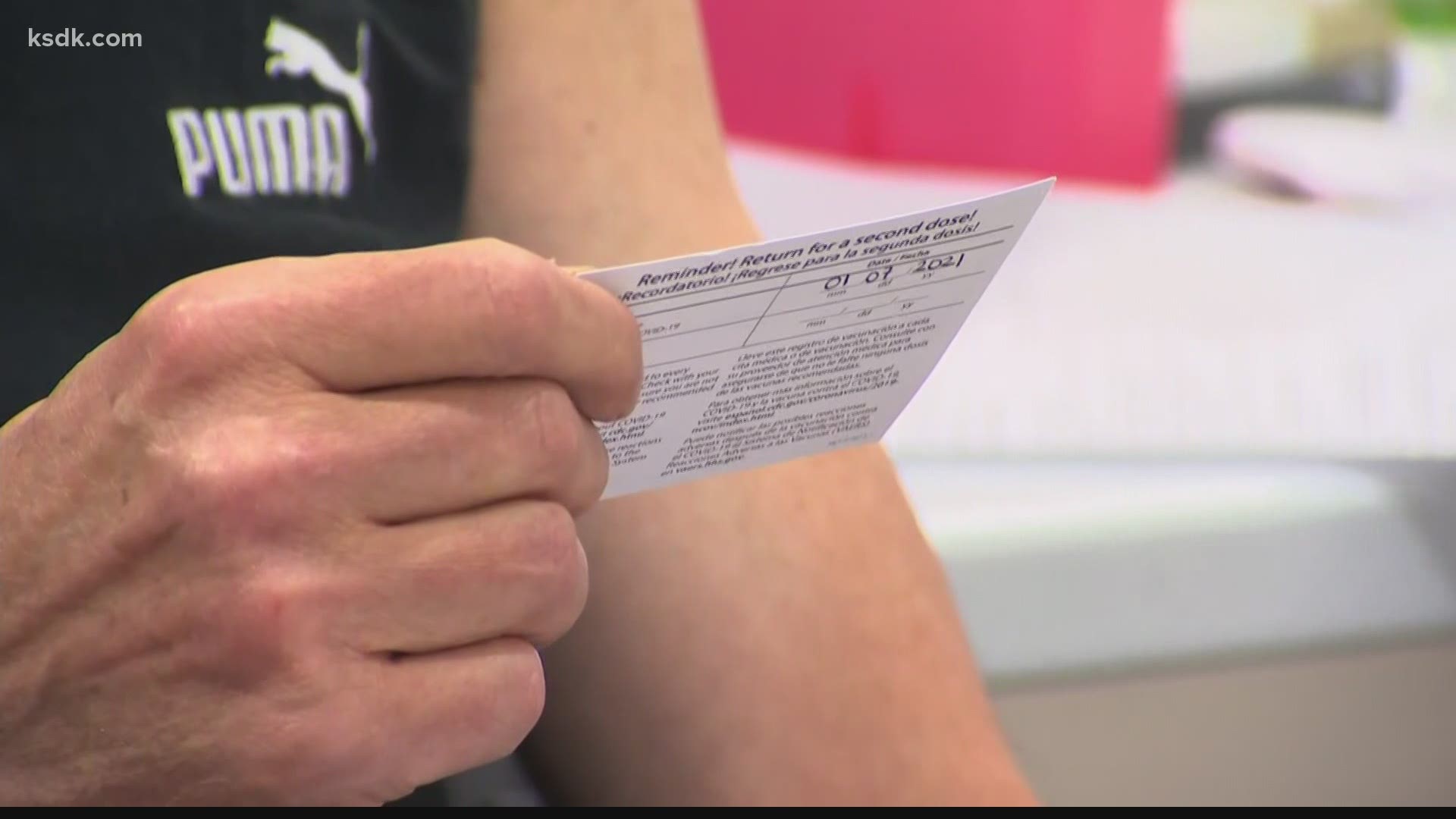ST. LOUIS — For people on immunosuppressants, there are still a lot of unknowns when it comes to the COVID-19 vaccine.
They don’t know how much protection they will have.
Washington University said these patients were not included in the large COVID-19 vaccine trials and the drugs they are taking may blunt the body’s antibody response to vaccines.
To answer questions, researchers with Washington University's School of Medicine are leading a trial to evaluate the safety and effectiveness of COVID-19 vaccines in people taking immunosuppressive drugs.
These drugs often treat autoimmune diseases, including arthritis, lupus, Crohn’s disease and psoriasis.
"In this group of patients, our team will be evaluating the quantity and quality of the antibody response normally generated from COVID-19 vaccines," Dr. Alfred Kim, assistant professor of medicine and leader of the trial, said. "Many people with autoimmune diseases need these medications to stay in remission.”
For Marshala Bernaugh, Lupus has taken a toll on her life.
"I've had some really low points to the point where they didn't think I may survive. And some high points, for the last 10 years I've been in remission," she said.
When the vaccine came into the picture, she wondered how it will affect her.
"There's actually very little data, particularly with COVID-19 vaccination and the type of responses, whether or not they're going to be protective or sufficient enough for them," Dr. Kim said.
Dr. Kim is Bernaugh's rheumatologist and told her the importance of the vaccine.
Not only did she get it, but also became one of the 100 participants in the trial.
They are collecting blood and surveys from pre-vaccination and several post-vaccination visits.
Results are already rolling in.
Dr. Kim said they will report the data in the next couple weeks.
But for now?
"Early on, without telling too much, we are seeing certain types of medications, in particular, may reduce antibody responses after vaccination. All we can say is that, with certain medications, we're definitely seeing a reduction though. I think the biggest caveat here is we don't know whether this type of reduction is so great that you won't be protected."
Bernaugh believes the vaccine gives her a fighting chance and hopes with her input, she can help others.
"There were people before me who tried the medications that I am now on that's helping me and I'm thinking if they hadn't done that, they wouldn't know how to treat me. So now, I feel like I'm paying it forward," she said.
Dr. Kim strongly urges patients on immunosuppressions to get vaccinated, as these patients tend to do worse if they contract COVID-19.
He encourages patients on the fence to discuss this with their treating physician.
Dr. Kim said they are still needing several hundred participants, so that way they get even more data.
HOW TO ENROLL:
- As long as they have a documented autoimmune disease and are on immunosuppressive medications, they are largely eligible. Its team can help determine final eligibility. This does exclude patients with cancer though.
- Researchers are enrolling adults ages 18 and older in the St. Louis region.
- They are recruiting health-care workers at the School of Medicine and patients seen in Washington University outpatient clinics.
- They have to get the vaccine, WashU cannot offer the vaccine through the study.
- You can sign up by emailing: Covaripad@wustl.edu
- Participants have to be able to come to the WashU medical campus though, as the blood processing requirements are unique and cannot be done in routine clinical labs.

